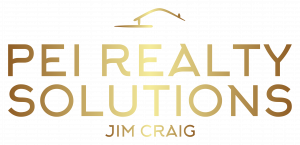Selecting the right neighborhood is a crucial aspect of the home-buying process. It greatly influences your lifestyle and can impact the future resale value of your home. Everyone’s definition of a perfect neighborhood varies, but there are universal factors that remain important for most people. Here’s a guide to help you in choosing a neighborhood that aligns with your lifestyle and needs:
- Assess Proximity to Essential Services: Consider the distance to schools, places of worship, shopping centers, and healthcare facilities. These amenities are not only vital for your day-to-day life but also affect the appeal of the area to future buyers.
- Engage a Local REALTOR®: A REALTOR® familiar with the area can provide invaluable insights. They can answer questions and give you a detailed understanding of the neighborhood.
- Understand the Community’s Dynamics: Spend time in the neighborhood at different times and days to gauge the lifestyle and community vibe. Is it more suited to young families, professionals, retirees? Your comfort in the community is paramount.
- Investigate Future Developments: Be aware of any future construction in the area. Plans for malls, offices, or other facilities can affect your living experience and the future value of your home.
- Consider Resale Value: Even if certain aspects of the home or location are not crucial to you, they might be important to future buyers. Think about the property’s appeal from a future resale perspective.
- Evaluate the Immediate Surroundings: Look at the condition of neighboring houses and the overall environment. Are they well-maintained? Is the area prone to heavy traffic or noise?
- Factor in Commute Times and Transportation: Consider your tolerance for commuting and the availability of public transport. Proximity to major highways and the quality of local transit can affect your daily life significantly.
- School Quality: For families with children, the quality and proximity of schools is often a top priority. Even if you don’t have children, living near good schools can positively affect property value.
- Recreational and Social Amenities: Proximity to parks, recreational facilities, restaurants, and social hubs can enhance your quality of life and are attractive to many homebuyers.
- Potential Annoyances and Nuisances: Be mindful of potential drawbacks like being too close to airports, railways, busy roads, or commercial areas which can be noisy or disruptive.
- Architectural Style and Neighborhood Age: Consider if you prefer historic neighborhoods with character homes or modern developments with contemporary houses.
- Lifestyle Fit: Think about how the neighborhood aligns with your lifestyle. Are there community events, clubs, or other social activities that match your interests?
- Safety and Security: Research the crime rate in the area. A safe neighborhood not only provides peace of mind but also tends to retain its property value better.
- Local Regulations and Zoning: Be aware of local zoning laws, especially if you plan to make future renovations. Also, consider any homeowners association (HOA) rules and fees if applicable.
Remember, choosing a neighborhood is a personal decision and what works for one person might not be ideal for another. Take the time to research and consider all aspects to ensure the area meets your needs both now and in the future.


